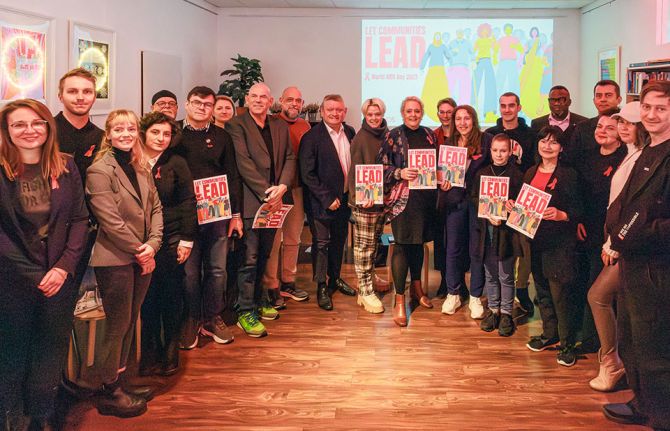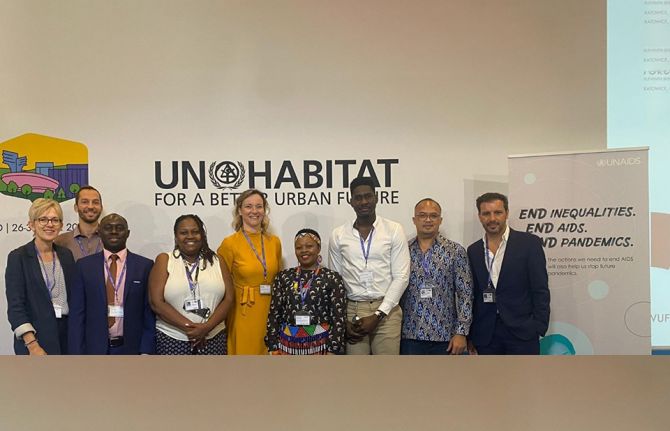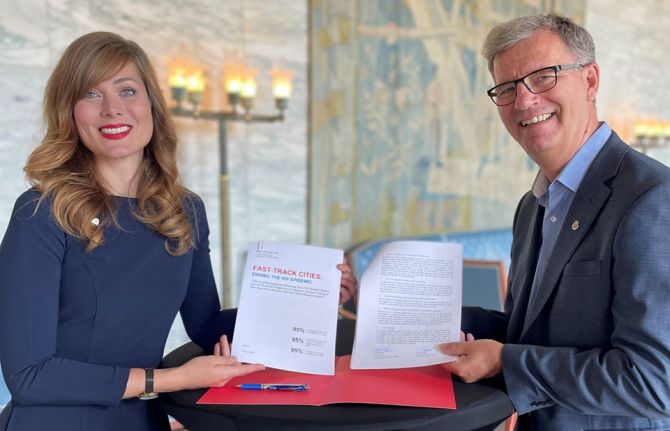
Feature Story
Local African community organizations in Brussels bring attention to children orphaned by AIDS globally
09 May 2011
09 May 2011 09 May 2011
According to UNAIDS, there are 16.6 million children worldwide that have lost one or both parents to AIDS-related illnesses, almost 15 million of them live in the sub-Saharan Africa region.
Credit: WB/ C.Carnemark.
On 5 May, the External cooperation office of the European Commission provided a platform for representatives of self-support organizations for people affected by HIV from the African migrant community in Brussels to present on the situation of children orphaned by AIDS and other vulnerable children.
Organized by community organizations in collaboration with the Joint United Nations Programme on HIV/AIDS (UNAIDS) and the European Commission, the session brought together officials from the European Union (EU) institutions, permanent representations of EU Member States, civil society and other EU stakeholders.
Speaking at the conference hosted by the European Commission, Loraine Mukazi, who was herself orphaned by AIDS, spoke up for the millions without voice, “Being an AIDS orphan is to become an adult very quickly, a parent for your own parents, a head of a family.” She added, ”Losing a parent is already difficult, losing a parent to AIDS even more so, as you are confronted with the denial, taboo, stigma and countless questions.”
While fewer people are becoming infected with HIV and fewer are dying from AIDS, the epidemic continues to leave behind a growing number of orphans. According to UNAIDS, there are 16.6 million children worldwide that have lost one or both parents to AIDS-related illnesses, almost 15 million of them live in the sub-Saharan Africa region.
Losing a parent is already difficult, losing a parent to AIDS even more so, as you are confronted with the denial, taboo, stigma and countless questions
Loraine Mukazi, who was orphaned by AIDS
In addition to the trauma of losing a parent, orphans are often subject to discrimination and may be less likely to receive healthcare, education and other needed services. In HIV-affected households lacking social protection or community support, food consumption can drop by 40% putting children at risk of hunger, malnutrition and stunted growth. Impoverished, and without support to educate and protect themselves, orphans and vulnerable children face increased risk of HIV infection.
One of UNAIDS goals outlined in its 2011-2015 strategy is to ensure that all households affected by HIV, including orphans and vulnerable children, are addressed in all national social protection strategies and have access to essential care and support.
Social protection programmes can effectively increase the nutritional, health and educational status of children and reduce their risk of abuse and exploitation, with long-term developmental benefits. Experts agree that child-sensitive social protection should focus on aspects of well-being that include providing adequate child and maternal nutrition; access to quality basic services for the poorest and most marginalized; supporting families and caregivers in their childcare role; addressing gender inequality; preventing discrimination and child abuse in and outside the home; reducing child labour; increasing caregivers’ access to employment or income generation; and preparing adolescents for their own livelihoods, taking account of their role as current and future workers and parents.
Henning Mikkelsen, UNAIDS Representative to the European Union, expressed the hope that the upcoming General Assembly High Level Meeting on AIDS will lead to better social protection for families affected by AIDS and break the vicious circle where orphans and other children become highly vulnerable to HIV.
External links
External Links
- échos Séropos (in French)
- World AIDS Orphan Day



